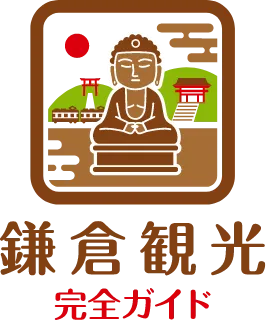Jufuku-ji Temple (寿福寺)
Discover the Jufuku-ji Temple
Founded in the early 13th century by Hojo Masako (北条政子), the wife of Minamoto no Yoritomo (源頼朝), Jufuku-ji Temple belongs to the Kencho-ji school of the Rinzai sect. After Yoritomo’s death, Masako had the temple built on the site said to have been the residence of Yoritomo’s father, Minamoto no Yoshitomo (源義朝). Although once considered for the shogunate’s base, the site was eventually deemed too small.
Highlights: Approach, Architecture, and Natural Beauty
The temple’s stone-paved path, called Katsura-jiki, is a highlight. It features asymmetrical stones in the center and neatly laid stones along the edges, reminiscent of Kyoto’s Katsura Imperial Villa. Early morning light filters through the trees, creating a peaceful scene perfect for photography. If you’re staying at Tosh’s Place (トシズプレイス), it’s an ideal stop before or after breakfast to begin your day.
Spiritual Significance and Cultural Heritage
Inviting the Zen monk Eisai (栄西), Jufuku-ji became a cornerstone of Rinzai Zen in Japan. Eisai introduced tea seeds from China and promoted tea-drinking culture. His book “Kissa Yojoki” (喫茶養生記), presented to the third shogun Minamoto no Sanetomo (源実朝), is one of the temple’s treasures, illustrating the deep ties between Zen and tea culture.
Local Treats and Experiences
Around the temple, cozy cafes and traditional tea houses offer a taste of Kamakura’s tea culture. Many shops serve matcha sweets made from locally sourced ingredients, perfect for a relaxing break with a historical flavor.
Notable Graves and Historical Figures
Jufuku-ji is the final resting place of notable figures such as diplomat Mutsu Munemitsu (陸奥宗光), poet Takahama Kyoshi (高浜虚子), and novelist Osaragi Jiro (大佛次郎). The temple also houses memorial yagura (cave-style tombs) believed to honor Hojo Masako and Minamoto no Sanetomo, including the ornate Karakusa Yagura with peony arabesque carvings.
Getting There and Visiting Info
It’s about an 8–10 minute walk (approx. 600 meters) from JR Kamakura Station (鎌倉駅) west exit. Along the way, enjoy small cafes and temples. While the main hall and Buddha hall are usually closed, they occasionally open during New Year’s and Golden Week. Goshuin (temple stamps) are available in pre-written form—visitors add the date themselves. Check local notices for the latest visiting details.
Best Time to Visit
Early mornings are especially recommended. Soft light on the stone path and tranquil surroundings provide a mindful start to the day. Evening visits, after tourists have left, also offer a serene atmosphere. Cherry blossoms in spring and colorful leaves in autumn further enhance the peaceful charm.
Nearby Spots Worth Exploring
Behind the temple, a historic trail leads toward Genjiyama Park (源氏山公園)—a popular yet slightly rugged hiking route for adventurous travelers. Wear comfortable shoes and explore Kamakura’s nature and history. Nearby attractions include Zeniarai Benzaiten Ugafuku Shrine (銭洗弁財天宇賀福神社), Eisho-ji Temple (英勝寺), and the Kamakura City Kawakita Film Museum (鎌倉市川喜多映画記念館).
For Whom Is This Perfect?
- For history and culture lovers: Discover deep connections to Masako, Eisai, and Sanetomo.
- For photographers: Capture the play of morning light on the Katsura-jiki path.
- For nature enthusiasts: Hike quiet trails behind the temple.
- For those seeking calm: Enjoy Kamakura’s spiritual stillness any time of day.
Wrap-Up: A Zen and Tea Legacy in a Quiet Corner of Kamakura
Jufuku-ji Temple reflects the love of Hojo Masako and the cultural legacy of Eisai. With early mornings and peaceful evenings, it’s a place to quietly absorb Kamakura’s essence. Staying at Tosh’s Place (トシズプレイス) allows you to take full advantage of these tranquil hours and explore the deep history and natural beauty of this hidden gem.
Basic Information
| Item | Details |
|---|---|
| Name | Jufuku-ji Temple (Kikokuzan Jufuku Kongō Zenji) |
| Address | 1-17-7 Ogigayatsu, Kamakura, Kanagawa |
| Highlights | Stone-paved approach, large Chinese juniper tree, cave tombs believed to be graves of Masako Hojo and Sanetomo Minamoto |
| Things to Do | Walk along the temple path, visit the cemetery |
| Opening Hours | Daytime only (up to the inner gate) |
| Admission | Free |
| Closed | Not specified |
| Notes | The area beyond the inner gate is not open to the public. Special access during New Year’s and Golden Week |
| Restrooms | Available (public restroom) |
| Official Website | https://www.trip-kamakura.com/place/japanheritage/168.html (Kamakura Official Guide, Japanese only) |
